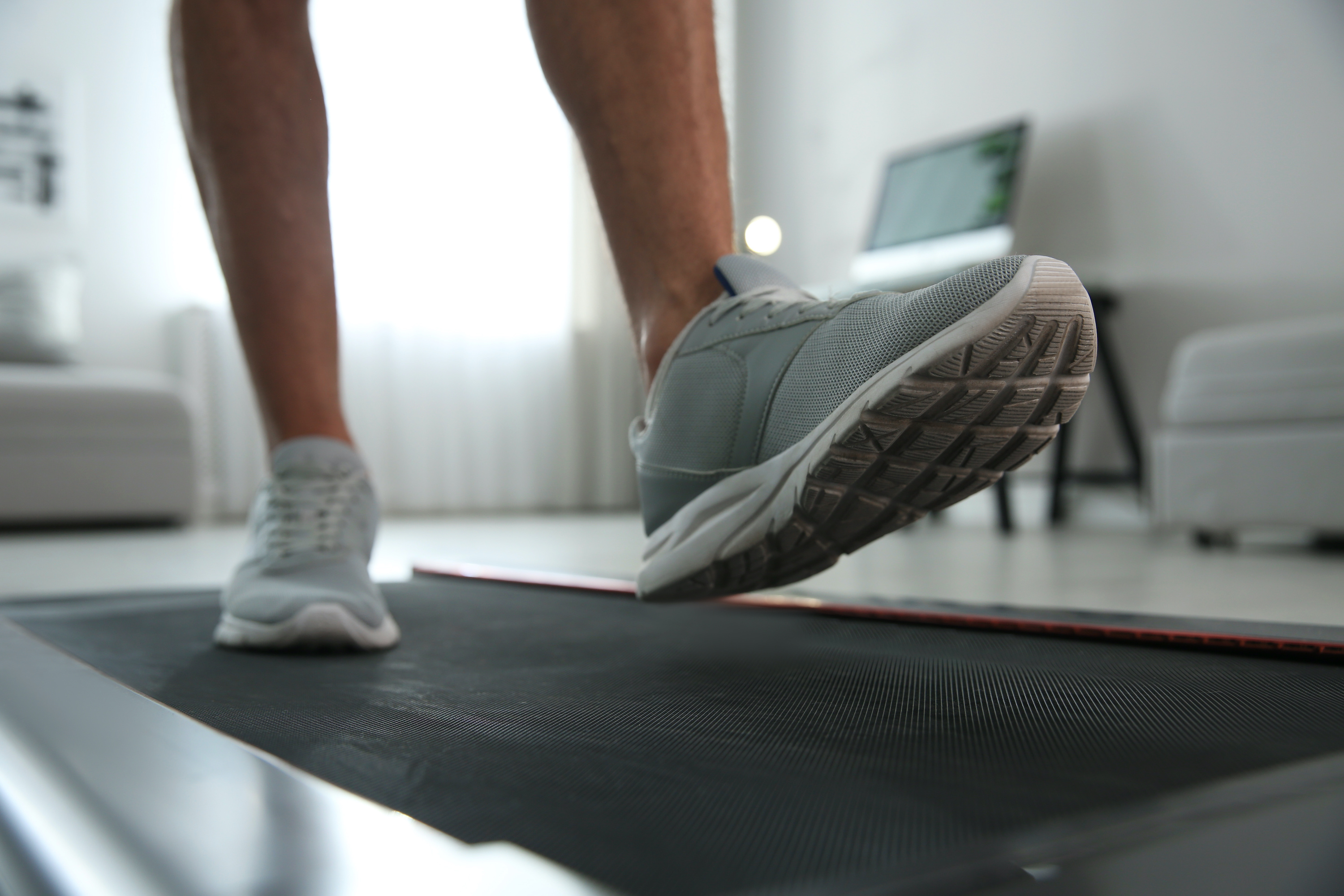If you’re a cardio enthusiast or a gym junkie, you may have noticed a new piece of cardio equipment at your gym or fitness center. Along the rows of many standard treadmills, there might be a curve or “curved” treadmill — which instantly leaves us questioning “why”? Curiosity is only normal when you see one of these unique treadmills, as there has to be some (good) reason for a deliberately curved treadmill track. In this guide, we’ll explore what you need to know about this emerging new cardio equipment and how to weigh curved treadmills’ pros and cons. Additionally, we’ll explore who should give a curved treadmill a try vs. who should stick with a traditional treadmill.
CONTENTS
What is a curved treadmill?

Unlike traditional treadmills which run on electricity, a curved treadmill does not. This means that a curved treadmill is self-powered and the motion is created by the momentum of the runner. The “concave” type shape of a curved treadmill is designed to mimic natural human movement such as you’d get when running outside. Since the curved track is slatted, the runner can manually propel the belt with the balls of their feet without requiring electricity. Without the need for a motor, this also means that curved treadmills can be placed anywhere (not requiring an electric source).
Recommended Videos
Atlantis Adventures Submarine HTML 5 Clip
Curved treadmill pros and cons

Pros
Curved treadmills offer several interesting benefits for athletes looking to enhance their cardiovascular fitness. One reason many runners are switching to curved treadmills is because they recruit more muscles compared to running on a traditional treadmill. The reason for this is that the runner must propel the treadmill track manually, engaging the glutes, calf muscles, and hamstrings more effectively.
If you’re looking to get a great lower-body workout, running on a curved treadmill is a great option. Plus, research also shows that using a curved treadmill reduces the vertical displacement of the body’s center of mass (COM). This means that you’ll expend more energy while walking or running on a curved treadmill. In turn, you can challenge yourself with a harder workout and also increase your heart rate during exercise. Athletes training to improve their VO2 max find the curved treadmill to help support their training plan.
Curved treadmills do not require any electrical parts, which means they’re easy to repair if an issue arises. This also means a long-term investment if you’re considering purchasing one for your home, as they tend to last a long time. Traditional treadmills, on the other hand, can experience electrical failure over time. Curved treadmills are a popular eco-friendly choice for environmentalists too and require no ongoing maintenance.
Additionally, the curved design of this type of treadmill encourages running toward the balls of your feet instead of a heel strike. In turn, this may be helpful to reduce the load on your joints. Those who have joint conditions may find a curved treadmill to be a better option.
Cons
Curved treadmills are great for walking and running at a constant speed, but they’re not ideal for acceleration. For those looking to train for fast, long sprints, it is a great option, but shorter sprints may be better suited on a standard treadmill. If you’re a marathon runner or training for a long run, a curved treadmill is not a good option. They are not designed to withstand long-distance runs. Due to the manual nature of curved treadmills, it can be difficult to maintain a consistent pace when walking/running on these.
Both treadmills and curved treadmills are fairly expensive, but curved treadmills tend to be more expensive. This is one drawback to consider, as you can expect to pay at least $1500 for a quality curved treadmill.
Other considerations
If you’ve never used a curved treadmill more, you can expect there to be a learning curve as you adjust to the unique motion. However, some people note that once you learn to use your treadmill, it is safer than standard electric treadmills.
Should you try a curved treadmill?

If your health or fitness center has a curved treadmill, it’s certainly worth a try. But deciding to purchase a curved treadmill for you will require a deeper dive into the pros and cons to help you consider if it’s a smart buy. Overall, curved treadmills are great for running intervals but may not be necessary for the occasional walk or run. If you’re looking to build up your endurance, outdoor runs are the ideal choice. Ultimately, the decision to try a curved treadmill depends on your fitness goals and training preferences, as there’s not a one-size-fits-all approach to fitness.
Editors’ Recommendations
- I spent a month running the Green Mountains in Arc’teryx Sylan shoes — what I thought
- Want to build muscles? The best foods with creatine (and 9 meal ideas)
- The best 30-minute workouts: Try these 6 effective routines
- How to do leg curls: Tips, variations, and mistakes to avoid
- Incline dumbbell press: Form, tips, and more



